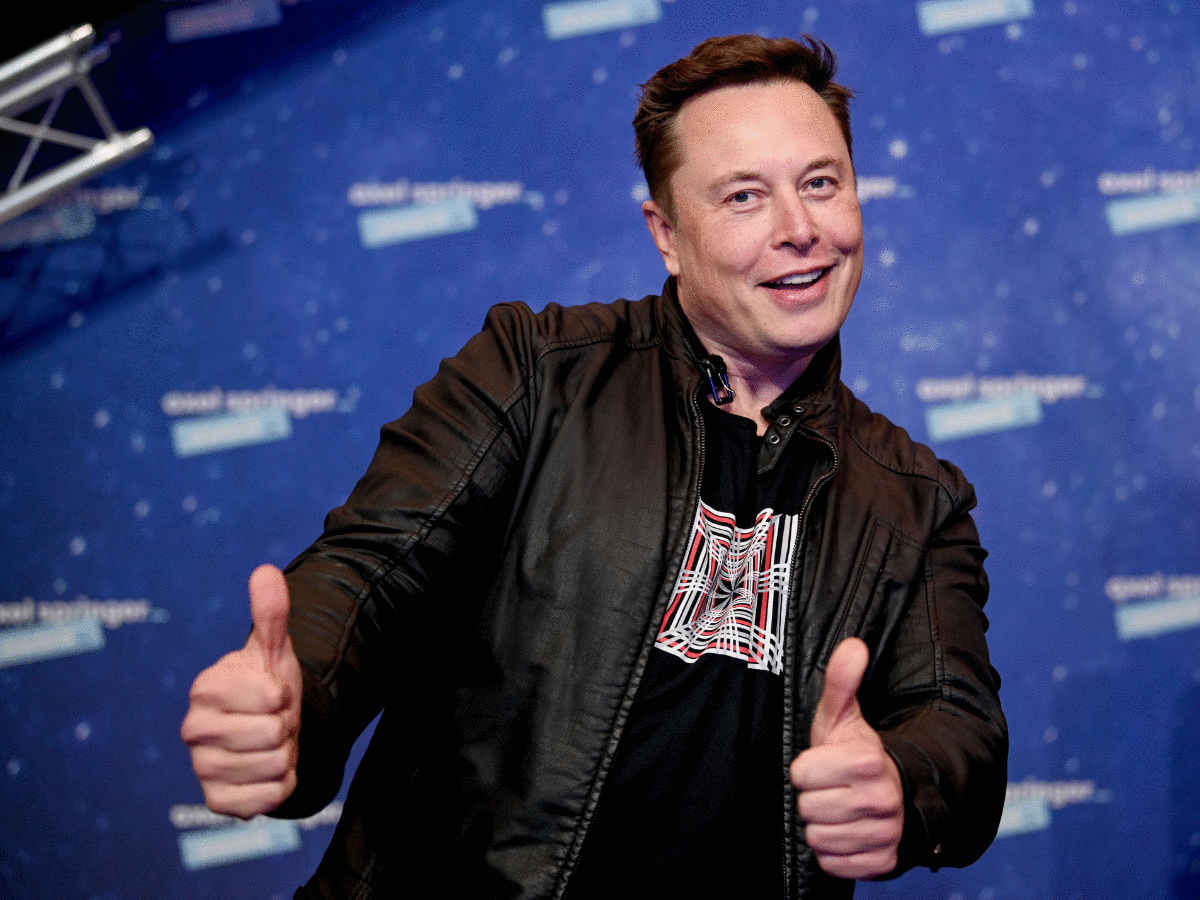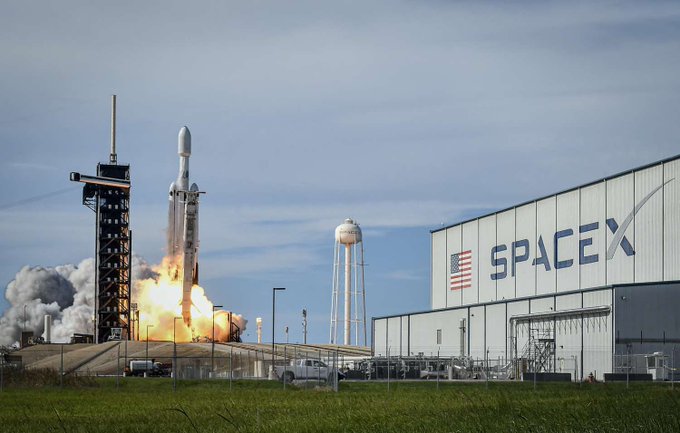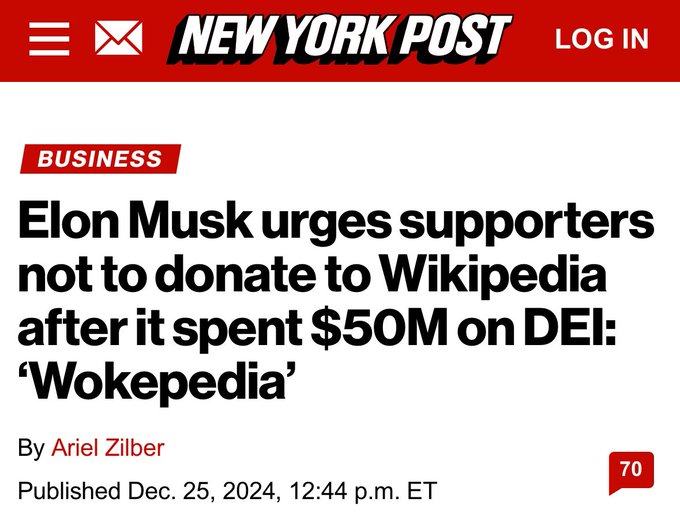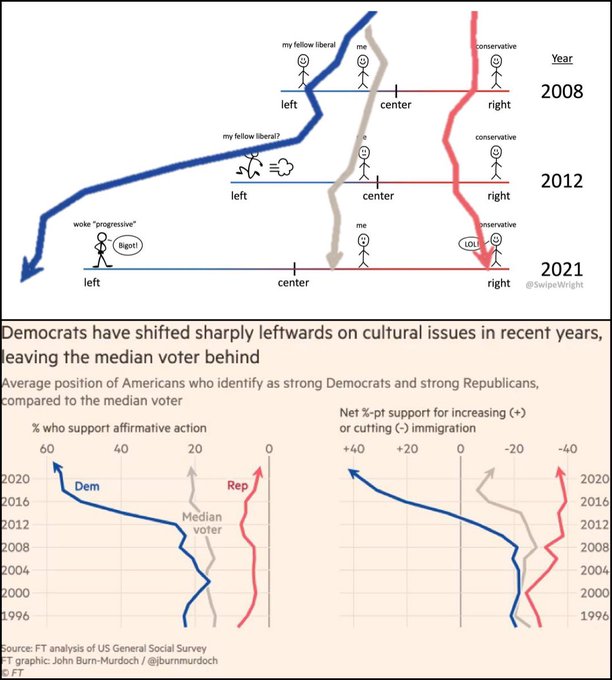You are using an out of date browser. It may not display this or other websites correctly.
You should upgrade or use an alternative browser.
You should upgrade or use an alternative browser.
The planet's richest African American in the news
- Thread starter Diogenes
- Start date
The “fixed pie” fallacy is at the heart of much wrong-headed economic thinking. There is essentially infinite potential for job and company creation. Think of all the things that didn’t exist 20 or 30 years ago!
~ Elon Musk @elonmusk
~ Elon Musk @elonmusk

Elon Musk wants to create in Texas what no other company and business leader has ever done

Elon Musk wants to create in Texas what no other company and business leader has ever done - The Times of India
TECH NEWS : Elon Musk may be taking new steps to form Starbase, a new municipality in coastal South Texas for SpaceX employees.

New York Subway Attacker Was Deported - Elon Musk Reacts

New York Subway Attacker Is Migrant Who Was Deported, Elon Musk Reacts
Hours after a woman aboard the New York subway was set on fire, billionaire Elon Musk reacted to the news of the suspect being an immigrant from Guatemala who had been previously deported.

Elon Musk Vs. Sam Altman: Inside The Feud Over OpenAI And ChatGPT
Elon Musk and Sam Altman co-founded OpenAI as a non-profit in 2015. The mission was a simple one: to advance artificial intelligence.
Since departing the organization six years ago, Musk has continued to create legal obstacles for OpenAI and its CEO - citing concerns over direction, leadership and profitability. Both leaders have been acrimonious in interviews. Sam Altman has called Musk “A bully”, while Musk refers to Altman as “Swindly Sam”, according to The Financial Times.
What’s driving the competitive feud between xAI and ChatGPT - and causing these former co-founders to fight?

Elon Musk Vs. Sam Altman: Inside The Feud Over OpenAI And ChatGPT
A story of control and competition unfolds, with the ongoing feud between OpenAI co-founders, Elon Musk and Sam Altman. What's the future of ChatGPT, inside the conflict?
 www.forbes.com
www.forbes.com

No 'immediate' plans to ban Elon Musk giving Nigel Farage's Reform UK large donations

No 'immediate' plans to ban Elon Musk giving Nigel Farage's Reform UK large donations - government
Speaking to Sunday Morning With Trevor Phillips, Commons Leader Lucy Powell leaves the door open to change the law going forward. She says Elon Musk could not donate as he was based abroad - but does not rule out him doing so through his UK business arms.

Donald Trump is already calling the shots, and so is Elon Musk
Donald Trump is already exerting his power on the United States's institutions.
Elon Musk, the richest man in the world, he has modified the algorithm of his powerful social media network, 𝕏, to ensure that the left can no longer prevent political stances they disagree with from receiving the greatest possible exposure.
Armed with this advantage and leveraging his wealth, he has been giving his opinion on almost everything.

Donald Trump is already calling the shots, and so is Elon Musk
EDITORIAL. After three days of drama, the US has barely escaped from budget paralysis. This shows just how much the president-elect wants to shake up parliamentary practices, aided by his advisor, who pushed opposition to the spending bill via X.
 www.lemonde.fr
www.lemonde.fr

AN AFRICAN-AMERICAN OWNED BUSINESS
SpaceX will be a better $1 trln bet than Tesla!
Rocket maker SpaceX’s internal $350 billion valuation makes it among the globe’s most valuable private startups.
That’s still a fraction of the worth of boss Elon Musk’s electric-car company Tesla, which sports a $1 trillion market value.
In 2025, though, it will become clear that terrestrial ambitions are no match for the stars.
SpaceX encapsulates Musk’s philosophy: do something different, then cut costs to drive out the competition.
Sure, Tesla’s 2006 “master plan” similarly pitched producing a premium car and then using the profits to drive down-market.
But SpaceX’s growth is more explosive – and harder to catch.
The key is Starlink, SpaceX’s broadband satellite network. Its success is twofold.
First, by building bigger rockets that can be reused, costs to launch tumble precipitously.
Second, Starlink’s superior performance versus rivals ensures a revenue stream that justifies more launches.
The company has around 7,000 satellites whizzing around Earth and is adding about 60 a week.
From 1965 to the early 2010s, there was essentially no growth in man-made objects launched into space.
Starlink turned that trajectory parabolic.
SpaceX accounted for over 85% of all orbital payloads in 2024’s first quarter, estimates BryceTech.
This rapidly scaling vertical integration – encompassing rockets, satellites and user terminals – puts would-be rivals like Amazon on the back foot.
So what is Starlink worth?
Tesla trades at 68 times EBITDA, despite sputtering growth.
Assume Starlink’s growth continues on its forecast path, put it on Tesla’s multiple, and the communications business would, at the end of the decade, be valued at well over $1 trillion.
That’s not even counting SpaceX’s other valuable businesses like rockets.
Ultimately, while the one-man space race continues, it will become clear that the stars are Musk’s real frontier.
I wonder what the fuel cost for a space launch is in 2025?
-
Lemme consult my crystal ball...

Lemme consult my crystal ball...

Do you find that being offensive and intolerant somehow improves your life?
Have you ever seen or heard of the movie named "Harvey"?
I used to be so very clever.
Today, I am still intelligent and knowledgeable... because I ask important questions in a pleasant way.
And Listen to the answers. What I learn isn't always the surface value of the answers given.
Sometimes, rarely now, I give advice too. When I've been generally pleasant, I find that my advice more often gets the consideration I appreciate.
-
Do you find that being offensive and intolerant somehow improves your life?
I wouldn't know. Has it enhanced yours?
I wouldn't know. Has it enhanced yours?
Yes! Immensely.
Mostly, because people tell me things I did not know, all the time.
Most of the time, it is a Leftie telling just how ignorant, intolerant, and Authoritarian they are...
But sometimes, usually from a Libertarian, or more rarely, a Conservative, but very rarely, I get truly good information from a Leftie. Something I didn't know, and needed to know.
As long as I stay pleasant, and listen, it works.
( Occasionally you need to tell a Leftie to STFU, but not too often, or it makes your day miserable... I don't be pleasant to them for their sake, I do it for my own soul! )
-
Yes! Immensely.
So you say.
Do what thou wilt shall be the whole of the law.




